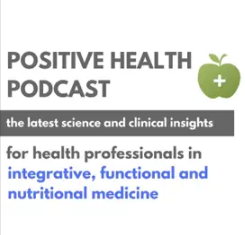
Stress and Digestion
March 18, 2025
Boost Your Brain Power
March 19, 2025Perimenopause

Menopause is a natural transition that all women will go through as they age. It heralds the transition from traditional child bearing years into later life. Commonly referred to as ‘The Change’ it is often associated with unpredictable and sometimes uncomfortable hormonal and physical change. When women talk about going through menopause they are actually describing the perimenopause, which is quite a recent term. It is during this stage that you could experience most of the classic menopausal symptoms, but it can start very subtly.
Many women will start to experience hormonal changes from around the age of 40. For some women, they can notice changes from the mid-30s onwards. These changes can be so subtle that you may wonder if it is all in your mind. Rest assured that what you are feeling is completely normal and taking steps to support your hormonal balance can help ease the transition. The perimenopausal stage can last between two and six years. The actual ‘menopause’ is the point when you have your last ever period. Obviously, you won’t know it is your last period until you look back, and you need to have no periods for 12 months for the menopause to have occurred. For most of us, the actual menopause will happen between the ages of 48 and 55. Whilst the average age for women to experience menopause in Ireland is 50 years.
Hormonal symptoms
The hormonal symptoms associated with the perimenopause are linked to a significant natural decline in oestrogen levels. This can trigger symptoms such as hot flashes or ‘power surges’ as our American cousins like to refer to them, also irregular periods, vaginal dryness and dreaded night sweats. Less obvious symptoms include changes in sleeping patterns, mood, abdominal weight gain and loss of bone density.
While some women sail through menopause symptom free, up to 75 percent of women are symptomatic to some degree. Given that perimenopause is a highly unique pattern, rather than a clear-cut calendar event, it can be hard to know when it even begins. It can also be easy to confuse many of the symptoms with other processes associated with aging, leaving many Irish women uncertain about acknowledging and describing their symptoms. If you are concerned about the impact of menopause, adopting these six simple diet and life strategies may ease your symptoms and help manage the chronic diseases that can occur with aging.
Clean up your diet
Prepare to clean up your diet. The perimenopause is a time of change and your female hormones are going to be fluctuating up and down as you go through this stage until you come out the other side and into the post-menopause, when your hormones will stabilise. The more gradually you go through the menopause, the less hormone fluctuations you experience and the easier the transition.
What you eat at this stage can make the difference between having a difficult or easy menopause. If you are suffering from increased mood swings, irritability and depression then taking measures to balance your blood sugar is absolutely crucial. This means not only thinking about the quality of the food that you eat, but also the timing. You can start by eliminating added sugar and refined carbohydrates in order to see a marked improvement in your moods. Switch to wholegrains and always include a lean portion of protein with each meal and snack.
The other important consideration is to eat little and often. This means not going more than three hours without eating. If you wait longer than this, your blood sugar may drop and the stress hormones adrenaline and cortisol will be released. It is the release of these hormones that gives rise to many of the symptoms relating to anxiety, tension, crying spells, depression and irritability.
Stress hormones
Symptoms can be connected to your adrenal glands, as your ovaries decline in the production of oestrogen your adrenal glands take over some of this role and produce a form of oestrogen. If your baseline stress levels are already high this additional demand can put the adrenal glands under pressure, exacerbating hormonal fluctuations. Along with balancing your blood sugar levels, taking steps to manage stress can be supportive of your overall hormone balance. Ask yourself, what do I regularly do to actively relax? and go from there.
Phytoestrogens
Food is medicine and adding phytoestrogens (plant oestrogens) to your diet will help cushion the effects of the hormone roller coaster as you go through the perimenopause. We know that women who eat a diet rich in phytoestrogens have significantly fewer hot flushes, up to half the amount experienced by women who eat very few phytoestrogens so make sure these are included in your diet and go for variety. Don’t base everything around soya include also chickpeas, lentils, flaxseeds (linseeds) and kidney beans.
Omega 3
Deficiencies of omega 3 essential fats can look like symptoms that may occur in the perimenopause such as dry skin, lifeless hair, cracked nails, fatigue, depression, dry eyes, lack of motivation, aching joint, difficulty in losing weight and forgetfulness. Including good sources of omega 3 in the diet can offset this. Aim to include daily food sources rich in omega 3 such as salmon, sardines and mackerel, also walnuts, chia seeds, flaxseed and seaweeds such as nori used in sushi.
Multivitamin support
A good-quality multivitamin and mineral can help to support your body during the perimenopause and beyond. This supplement should contain vital nutrients for bone health, good levels of antioxidants to help slow down the ageing process, and other important vitamins and minerals, such as the B vitamins and chromium, to help keep blood-sugar levels balanced. It should also contain calcium, magnesium, manganese, boron and vitamin D3. It is also important to consider increasing food sources of these nutrients focussing on a wholegrains, lean proteins, healthy fats and a wide variety of pesticide free vegetables.
Herbal support
There are a number of natural herbs that are helpful for the perimenopause including sage, hops and red clover. Be mindful that certain herbs may interact with other medication so should only be considered under the advice of a medical herbalist. Sage has been shown to decreased hot flushes by 50% after 4 weeks and by 64% after 8 weeks. It also helps with decreasing insomnia, irritability, anxiety, physical and mental exhaustion by up to 47% which can all be symptoms in the perimenopause. Hops have been shown to help with both hot flushes and night sweats. Red clover is one of the most extensively studied herbs and research indicates that it significantly reduces hormonal ‘power surges’ compared to a placebo.
Exercise is key
As well as eating a healthy, bone building diet a regular exercise programme is crucial for warding off osteoporosis. This is because the more physically active we are, the more bone we will build. Exercise also plays an important role in managing a healthy weight and reducing circulating levels of cortisol, buffering you against the stress of a busy lifestyle. Research shows that regular exercise can reduce risk of all-cause mortality by up to 50% and death by cardiovascular disease by a staggering 70% in women. Aim for a minimum of 30 minutes exercise five times a week. As we get older we naturally lose muscle which makes it harder to burn fat. Exercise is important because the more muscle you have the more fat you burn. Try to include more weight resistance exercise as this helps to build muscle which is metabolically active.
Making sure that you are eating and living well during the perimenopause is not only going to help you with this transition naturally, but it will give you a really good foundation for your long-term health. You can have another 30 to 50 years to live into the future and so take advantage now of sowing the seeds of good health.
This article was originally written by Nutritionist Sorcha Molloy for Galway Now. Sorcha operates Positive Nutrition Galway and offers online appointments servicing Limerick, Clare, Galway Mayo and Sligo.


